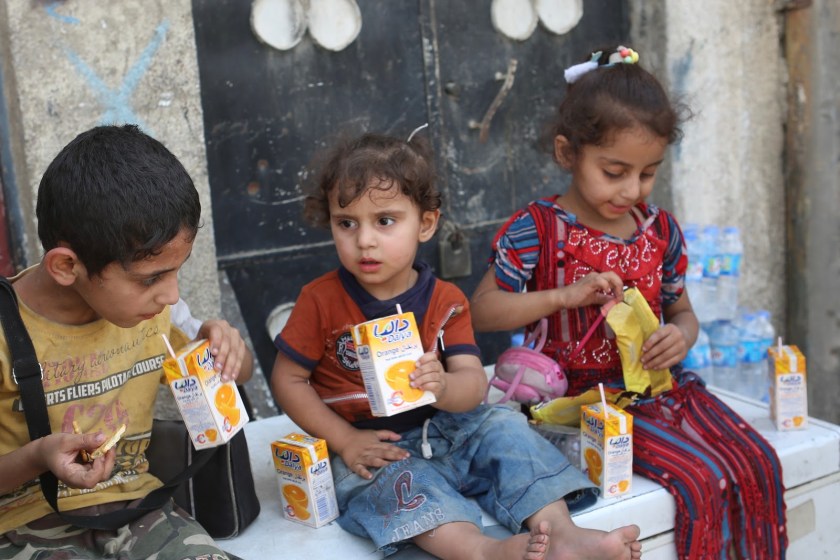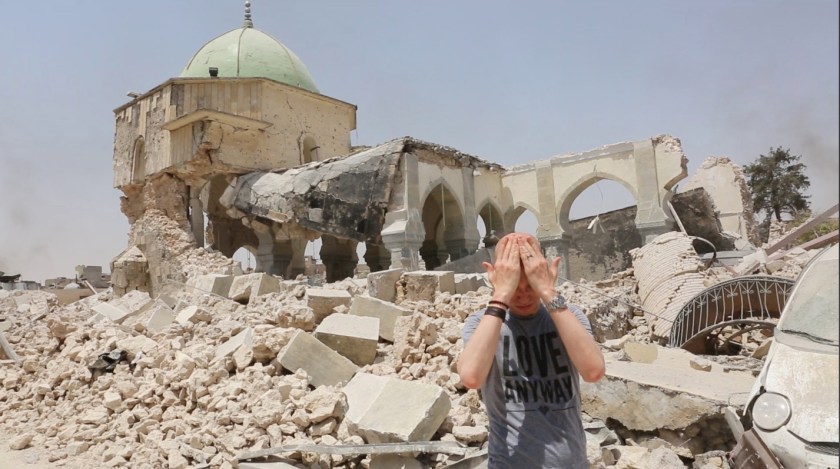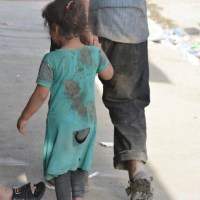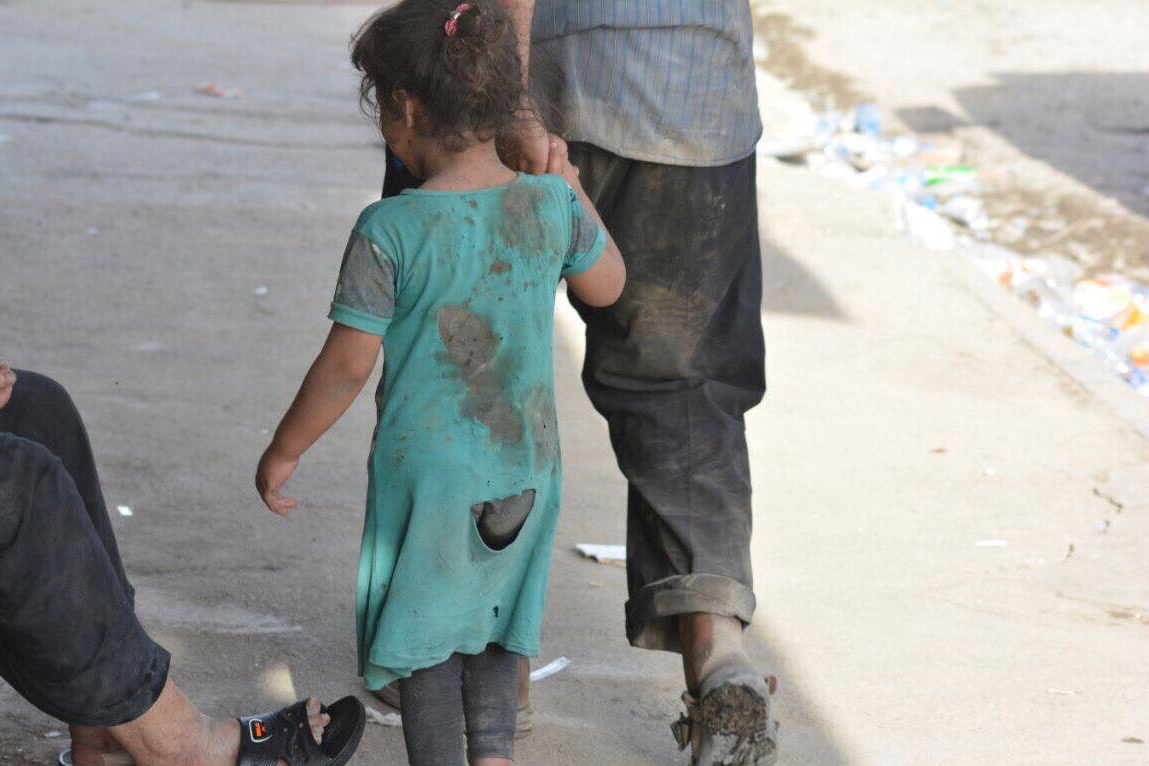I remember the last time I stood at the border.
There were heavily armed soldiers all around, tasked with securing the area. We were steps away from active violence.
There were people coming toward us who were undeniably suspect, who posed a very real threat. There was good reason to be wary of them.
There were kids all around, too. They were clearly vulnerable. They’d been running for their lives. They were hungry. Some didn’t even have shoes.
On this border, I saw women and children treated with respect. I didn’t see any children separated from their mothers.
I didn’t see them treated improperly or held inhumanely.
I saw kids honored, loved, celebrated, cared for. It was beautiful.

This was not the US-Mexico border. I was standing on the border between ISIS and the rest of the world during the battle for Mosul.
People were streaming across this border, running for their lives while bombs fell, some of them meters away.
Even in the middle of an active war zone, where soldiers had every reason to be on edge, women and children were treated with respect.
I saw human dignity upheld by Muslim soldiers who, for most of my adult life, I was taught to think negatively of. Those who I’d been told were inherently my enemy—they were immanently humane.
This was ground zero of the war against the most feared extremist group in my lifetime. We were meters away from violence, not countries away. We had every reason to be concerned about security.
Yet in the midst of this, people’s dignity was largely upheld.
I can tell you from my firsthand experience on the frontlines:
If it is possible to secure a border between an extremely violent enemy regime and its neighbor without disregarding people’s dignity (and it is), then it’s possible where you live, too.
It is possible along the US-Mexico border.
It is possible in the Rio Grande Valley and the Sonoran Desert.
I know firsthand that we do not have to separate moms from their children in order to be secure—not even in an active war zone. I know firsthand we don’t have to treat suspects as guilty until proven innocent. I know what it’s like see my neighbors walk up to those who are truly violent, truly guilty—and still love anyway.
We have lost the creativity, the imagination to do this in America. That might be the greatest tragedy here, that we lack the moral imagination to dream our way out of this.![]()
Yesterday, President Trump signed an executive order halting family separations. I am grateful. It was the right thing to do.
But this crisis is not over. Not for the thousands of children already separated from their parents. Not for thousands more still on the run for their lives.
Nor is our crisis of conscience over, as we reel from the shock of seeing US government officers rip children from the arms of their mothers.
I’ve heard so many friends say, “I thought we were better than this. This is not who we are.”
I know what they mean. But I would humbly submit that this is in fact who we are—it’s at least part of who we’ve always been.
Our very origins as a nation are wrapped up in the separation of children from their parents. Both the Native Americans on whose land our country was built and the African slaves who were forcibly brought to America to build the country and economy we now benefit from.
We cannot ignore the fact that tearing families apart is a part of our country’s legacy, as well as our present.
If we don’t want it to be a part of our future, we have to repent of this. An executive order halting the latest trauma cannot get us to where we want to go. If we care deeply about the children who’ve been separated from their families over the last few weeks, then we have to reckon with our past.
We shouldn’t pretend this is some new thing that has no precedent.
It is right and good that we want to change this policy. That is holy, this impulse to say, “We don’t want to be like this.”
Let’s lean in to that. Let’s fan that desire into a flame.
![]()
We’ve heard from so many of you in recent days, asking how we can show up.
What I can tell you right now is that we are listening. We are learning. The frontlines are not just in Iraq or Syria. The frontlines where we—you, ALL of us—live.
I don’t know what each next step looks like yet.
I know we have to show up in a way that embodies the values of preemptive love that we’ve spent a decade refining on the frontlines in Iraq and Syria. The need for us to show up doesn’t change because of one executive order—there are still many, many families on the run or stuck in limbo.
And I know that we make the road by walking.
In the days and weeks ahead, we hope to share more about what we are learning and how we might be able to show up with preemptive love for these friends who are on the run for their lives. But for now, please know: we are in this. The frontlines are not just “over there.” The frontlines run straight through the Rio Grande Valley. They run through immigrant detention centers and through our neighborhoods.
The frontlines are where we live.


